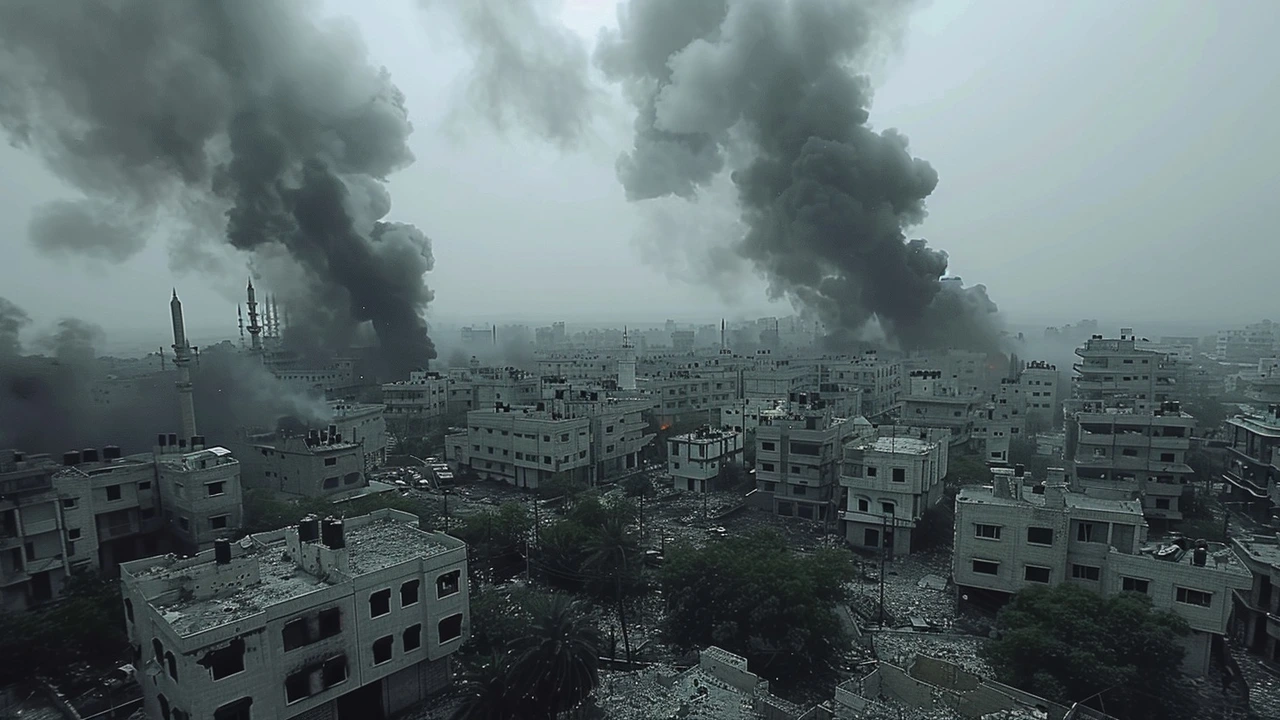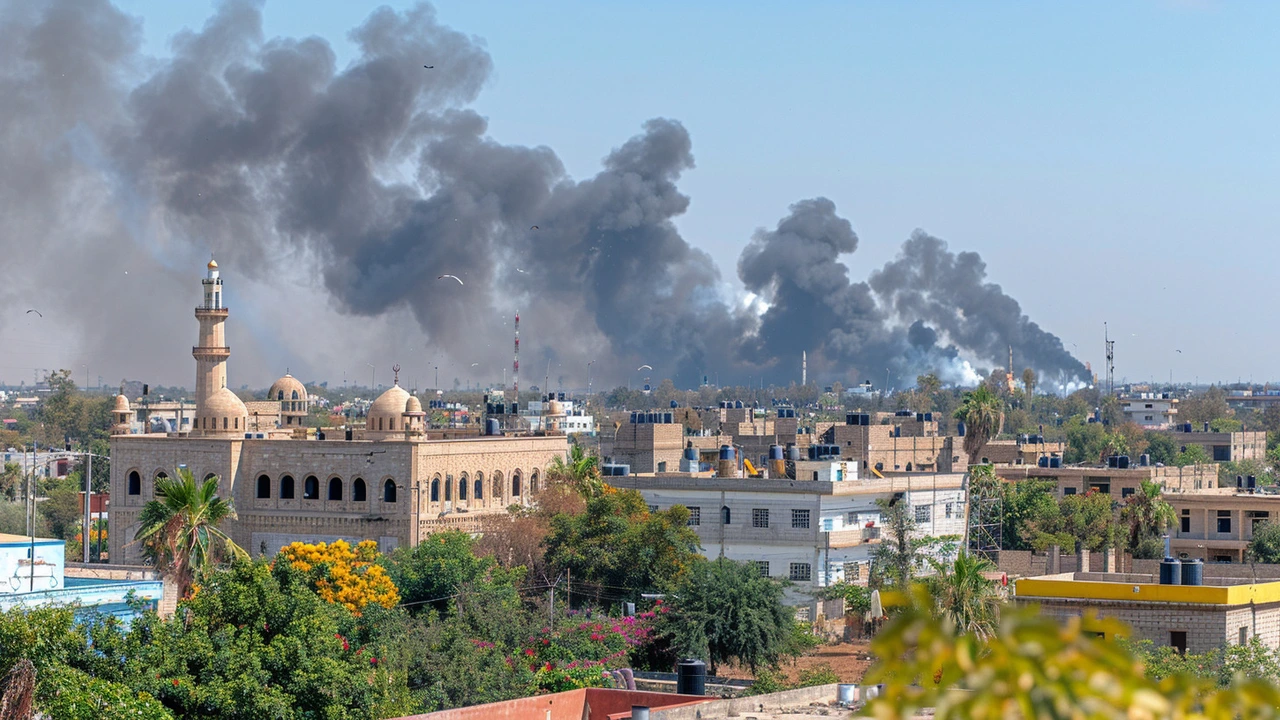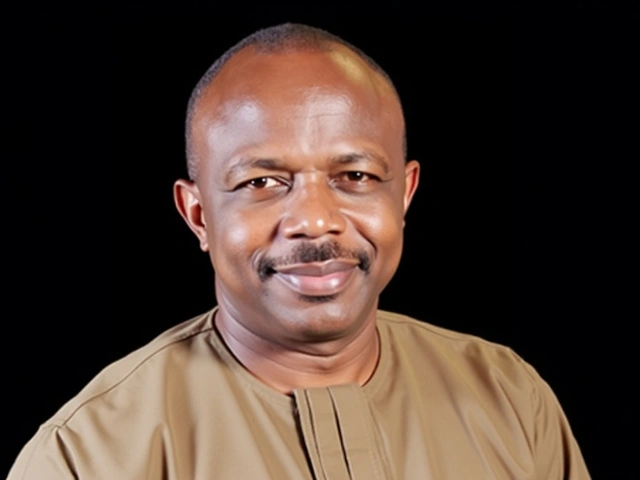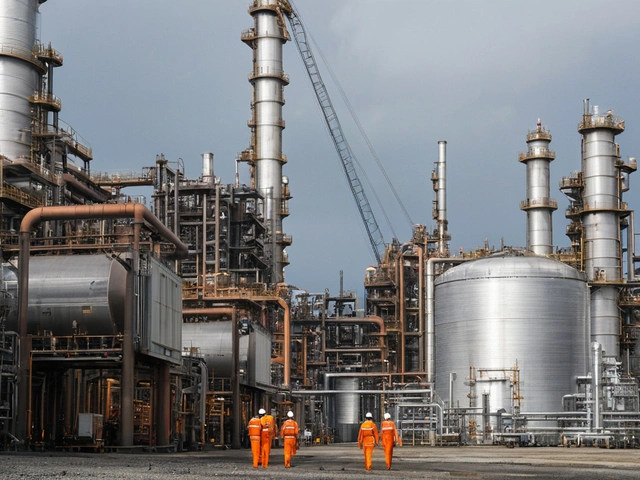Israeli Tanks Enter Central Rafah, Sparking International Reactions
Witnesses in the city of Rafah, Gaza, reported a significant and alarming development as Israeli military tanks re-entered the central area for the first time since the beginning of this month. The tanks made their way into the heart of the city under the cover of darkness, witnessed at key locations, including the Al Awda roundabout and around the Abu Hashem building, creating a scene of apprehension among the residents.
This move by the Israeli Defense Forces (IDF) has been confirmed, with the IDF stating that their operations in Rafah are carefully targeted and precise. The IDF emphasized that the presence of Hamas battalions in the city necessitated their actions, underscoring the aim to eliminate threats. Rafah, located in the southern tip of the Gaza Strip bordering Egypt, has been under the IDF's microscope since May 7, with Israel focusing on cutting off tunnels leading to the Sinai Peninsula.
High Tensions and International Disapproval
The Egyptian government has expressed strong disapproval of the continued military operations in Rafah, exacerbating already high tensions in the region. With each passing day, this military advancement injects a sense of unease among the neighboring countries and raises questions about regional stability. The international community, from the United Nations to various European allies, has been vocal in its calls for a halt to the ongoing military endeavors in Rafah, urging Israel to reconsider its strategy in favor of peace and humanitarian concerns.
Perhaps most notably, the United Nations has reported that around 1 million Palestinians have been displaced from Rafah since the onset of the IDF’s operations. This mass exodus represents a humanitarian crisis on an enormous scale, with families forced to leave their homes in search of safety. The Biden administration, echoing global sentiments, has cautioned against a large-scale ground invasion unless Israel can guarantee the safety of civilians, highlighting the profound necessity of protecting non-combatants in conflict zones.
Humanitarian Concerns and Global Reactions
The broader international community, including the International Court of Justice, stands unified in its call to halt the military operations in Rafah. The United Nations and a bevy of European allies have intensified their diplomatic outreach, pressing Israel to comply with international humanitarian norms. The immediate cessation of hostilities is seen as pivotal not just for the safety of the displaced Palestinians but also for the broader stability of the Middle East.
The recent Israeli strike on a Palestinian shelter in Rafah, resulting in 45 casualties and wounding 200 more, has sparked a storm of global outrage. The tragedy has drawn fierce criticism from human rights organizations, global leaders, and ordinary citizens alike. In response, Israeli Prime Minister Benjamin Netanyahu has somewhat uncharacteristically acknowledged the incident as a 'tragic error,' a rare admission that, while significant, does little to quell the anguish of those affected.
Impact on Civilians and the Humanitarian Response
The human cost of the conflict in Rafah is stark and deeply unsettling. The displacement of nearly 1 million residents is a testament to the severe disruption in daily life and the immense scale of the humanitarian emergency. Refugee camps, temporary shelters, and international aid stations are struggling to cope with the influx of displaced Palestinians who are in dire need of food, water, medical care, and psychological support.
Health facilities in and around Rafah are overwhelmed, with a critical shortage of medical supplies further complicating the already dire situation. Children, who make up a significant portion of the displaced population, are particularly vulnerable, facing not only physical threats but also the long-term psychological trauma of conflict and displacement.
International relief efforts have kicked into high gear, with aid organizations deploying resources and personnel to provide immediate assistance. Despite these efforts, the scale of the crisis calls for a more substantial and sustained global response. The precarious conditions in Rafah have drawn comparisons to previous major humanitarian disasters, emphasizing the urgent need for coordinated international intervention.
Diplomatic Efforts and Future Outlook
As the conflict drags on, diplomatic efforts aimed at de-escalation continue at various levels. High-level meetings, multilateral forums, and backchannel negotiations are all in play as the international community seeks to broker a ceasefire and pave the way for more sustainable peace initiatives. However, the road to a lasting solution is fraught with challenges, given the deep-seated mistrust and historical grievances between Israel and Palestinian factions.
The role of major international players, including the United States, the European Union, and regional powers like Egypt and Jordan, is pivotal in mediating and facilitating dialogue. The international community's larger goal is to ensure that any resolution not only halts current hostilities but also addresses underlying issues to prevent reoccurrences.
While the immediate focus remains on halting the military operations and ensuring the safety of civilians, long-term efforts will need to address broader political and socioeconomic factors. The reconstruction of Rafah, the return of displaced populations, and the establishment of a stable and peaceful environment will require substantial resources, commitment, and cooperation across multiple sectors.

Conclusion: An Urgent Call for Compassion and Action
In these grim circumstances, Rafah stands as a poignant reminder of the human cost of conflict. The international community's united call for a cessation of hostilities is not just a plea for peace but a demand for the respect and protection of human life. The ongoing situation in Rafah underscores the critical importance of diplomatic efforts, humanitarian aid, and most importantly, compassionate leadership.
As nations and organizations around the globe rally to address the crisis, the hope remains that cooler heads will prevail and that a lasting, peaceful resolution will emerge from the ashes of conflict. For now, the people of Rafah continue to endure a tumultuous reality, waiting for the world to act decisively for their safety and future.




In the face of the recent tank movements into Rafah, it becomes imperative-indeed, absolutely essential-to reaffirm the principles of international humanitarian law; civilians must not become collateral damage, and the protection of non‑combatants should dominate any strategic calculation, especially when entire neighborhoods are at stake, and when the specter of displacement looms over a million lives, the moral calculus demands restraint, measured action, and a relentless focus on minimizing harm, otherwise the very fabric of humanity unravels, and the global community bears witness to a tragedy that could have been averted.
The narrative that paints the IDF's advance as a clean‑cut, precision operation is, at best, a selective retelling; it conveniently sidelines the daily reality of families huddled in makeshift shelters, terrified of every distant rumble. While some herald the move as necessary to neutralize Hamas pockets, they ignore the asymmetry of power that renders civilian casualties almost inevitable. Moreover, the same voices that demand immediate cease‑fires from other parties seldom apply that pressure uniformly, exposing a double standard that fuels resentment. The truth is that each tank rolling through central Rafah amplifies the humanitarian crisis, stretching already‑overburdened medical facilities beyond breaking point. Children, who have already endured unspeakable trauma, now confront the possibility of losing the few remaining safe spaces they knew. International bodies, from the UN to the ICJ, have repeatedly warned that indiscriminate force violates the Geneva Conventions, yet those warnings ring hollow amidst the ongoing bombardments. The displacement figures-approaching one million-are not abstract statistics but represent countless broken homes and shattered livelihoods. When aid convoys struggle to navigate narrow streets choked with debris, it's a stark reminder that military objectives are clashing with basic human needs. The recent tragic strike on a civilian shelter, resulting in dozens of deaths, should have prompted a decisive policy shift, not a vague apology. Unfortunately, the rhetoric of “tragic error” serves more to placate critics than to address systemic issues. The broader regional tension, especially with Egypt voicing strong disapproval, underscores how volatile the situation has become. If we continue down this path, the risk of spillover into neighboring areas escalates dramatically. The world cannot stand by while a city’s infrastructure crumbles under the weight of armored vehicles. Diplomatic channels must be revitalized, not sidelined, to forge a sustainable cease‑fire. Only then can humanitarian corridors function effectively, delivering food, water, and medical aid. In sum, the current approach is unsustainable; a recalibration toward genuine civilian protection is overdue, lest history record this as another avoidable calamity.
i totally agree with you on the need for a more humane approach, but lets not forget that the situaion on the ground is super complex, many folks on both sides are sufferin. The tactics used by different groups can sometimes blur the lines betwen combatants and civilians, which makes it even harder to protect everyone.
Rafah is in a tough spot right now. The tanks are just adding more stress to the people there.
Totally feel you, Ajay. It’s heartbreaking to see civilians stuck in the crossfire, hoping for some relief.
Let’s cut the sugar‑coating-any military push into densely populated areas is a disaster waiting to happen. The collateral damage is not an "unfortunate side effect," it’s a predictable outcome. Governments love to point fingers at opponents while ignoring their own role in fueling the fire. The rhetoric about "targeted operations" often masks a broader strategy that disregards civilian lives. If the world wants real accountability, it should start demanding transparent investigations, not empty statements.
True, the impact on civilians is massive. We need clearer rules of engagement.
War turns the soul into a battlefield of shadows.
While poetic, the reality remains that hundreds of families are without shelter. Immediate humanitarian corridors are essential to deliver food, water, and medical aid. Coordinated efforts from NGOs and UN agencies can alleviate the pressure on local facilities. Let’s push for a cease‑fire that allows aid to flow unhindered.
It is vital that all parties adhere to the laws of armed conflict. The protection of civilians must be prioritized above all else. International cooperation is required to achieve a sustainable resolution.